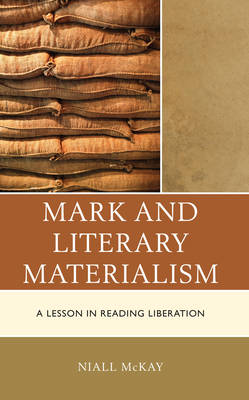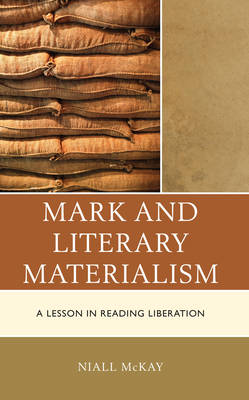
- Afhalen na 1 uur in een winkel met voorraad
- Gratis thuislevering in België vanaf € 30
- Ruim aanbod met 7 miljoen producten
- Afhalen na 1 uur in een winkel met voorraad
- Gratis thuislevering in België vanaf € 30
- Ruim aanbod met 7 miljoen producten
Zoeken
Omschrijving
The interpretation of the Bible is intricately interwoven with the history of and rhetoric of European colonization. During the modern era, the traditions of biblical interpretation played a crucial framing role in the emergence of industrialized nation-states, the capitalist mode of production, and the colonial enterprises of European powers. While the Bible has been used to justify the power of ruling classes and dominating nations, it has also been a source of liberative and resistant political discourse. In this book, Niall McKay uses the tools of literary materialism to read the gospel of Mark and build upon the representational epistemology and patterns of interpretation of the rich Marxism of the Frankfurt school. This reading is framed against and around the liberative biblical movements of late colonial and post-colonial South Africa in order to develop "ways of reading" which are generative of liberation. As a consequence, the author makes a valuable contribution to an ongoing politics and practice of resistance that is attentive to issues of religious collaboration, liberation, colonialism, and the ends of late capitalism.
Specificaties
Betrokkenen
- Auteur(s):
- Uitgeverij:
Inhoud
- Aantal bladzijden:
- 206
- Taal:
- Engels
- Reeks:
Eigenschappen
- Productcode (EAN):
- 9781666902266
- Verschijningsdatum:
- 1/08/2022
- Uitvoering:
- Hardcover
- Formaat:
- Genaaid
- Afmetingen:
- 152 mm x 229 mm
- Gewicht:
- 471 g

Alleen bij Standaard Boekhandel
+ 373 punten op je klantenkaart van Standaard Boekhandel
Beoordelingen
We publiceren alleen reviews die voldoen aan de voorwaarden voor reviews. Bekijk onze voorwaarden voor reviews.







